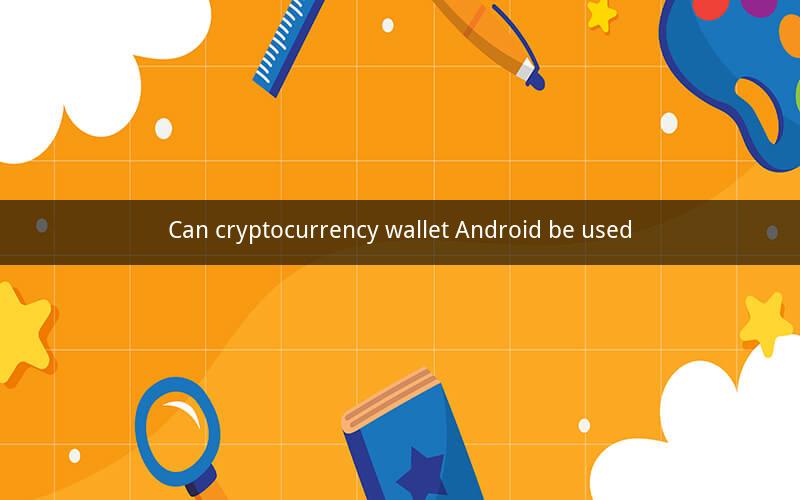
Table of Contents
1. Introduction to Cryptocurrency Wallets on Android
2. Understanding the Functionality of Android Cryptocurrency Wallets
3. How to Use a Cryptocurrency Wallet on Android
4. Security Measures in Android Cryptocurrency Wallets
5. Top Cryptocurrency Wallets for Android
6. Pros and Cons of Using Android Cryptocurrency Wallets
7. Frequently Asked Questions about Android Cryptocurrency Wallets
1. Introduction to Cryptocurrency Wallets on Android
Cryptocurrency wallets on Android devices have become increasingly popular as the digital currency market continues to grow. These wallets allow users to store, send, and receive cryptocurrencies such as Bitcoin, Ethereum, and Litecoin. With the rise of mobile technology, Android cryptocurrency wallets have become a convenient and accessible option for users worldwide.
2. Understanding the Functionality of Android Cryptocurrency Wallets
Android cryptocurrency wallets offer a range of functionalities, including:
- Storing Cryptocurrencies: Users can store their digital assets securely within the wallet app.
- Sending and Receiving Cryptocurrencies: Users can send and receive cryptocurrencies to and from other wallet addresses.
- Exchanging Cryptocurrencies: Some wallets offer built-in exchange functionality, allowing users to convert one cryptocurrency to another.
- Accessing DeFi Services: Users can access decentralized finance (DeFi) services, such as lending, borrowing, and staking, through their wallet.
3. How to Use a Cryptocurrency Wallet on Android
To use a cryptocurrency wallet on Android, follow these steps:
1. Download a Wallet App: Choose a reputable wallet app from the Google Play Store, such as Trust Wallet, MetaMask, or Coinbase Wallet.
2. Create a Wallet: Follow the app's instructions to create a new wallet. This typically involves generating a private key and setting up a password or PIN.
3. Backup Your Wallet: Ensure you have a backup of your wallet's private key or mnemonic phrase. This is crucial for recovering your wallet in case of loss or damage to your device.
4. Fund Your Wallet: Transfer cryptocurrencies to your wallet from an exchange or another wallet.
5. Use Your Wallet: Send, receive, or exchange cryptocurrencies as needed.
4. Security Measures in Android Cryptocurrency Wallets
Security is a top priority for Android cryptocurrency wallets. Here are some common security measures:
- Encryption: Wallets use encryption to protect users' private keys and sensitive data.
- Multi-factor Authentication: Some wallets require a second layer of authentication, such as a fingerprint or facial recognition, to access the wallet.
- Cold Storage: Many wallets offer cold storage options, which store cryptocurrencies offline to prevent theft.
- Regular Updates: Wallet developers regularly update their apps to patch security vulnerabilities and improve performance.
5. Top Cryptocurrency Wallets for Android
Several Android cryptocurrency wallets stand out from the rest:
- Trust Wallet: A popular, multi-currency wallet with a user-friendly interface and support for DeFi services.
- MetaMask: A popular Ethereum wallet that also supports other blockchains and DeFi services.
- Coinbase Wallet: A secure, easy-to-use wallet that supports a variety of cryptocurrencies and integrates with the Coinbase exchange.
- Mycelium: A feature-rich wallet that offers cold storage options and advanced security features.
6. Pros and Cons of Using Android Cryptocurrency Wallets
Using an Android cryptocurrency wallet has its advantages and disadvantages:
Pros:
- Convenience: Access your wallet and cryptocurrencies from anywhere using your Android device.
- Accessibility: Android wallets are widely available and compatible with most devices.
- Control: You have full control over your private keys and cryptocurrencies, reducing the risk of loss or theft.
Cons:
- Security Risks: Mobile devices are more susceptible to hacking and theft than desktop computers.
- Limited Storage: Some Android devices may not have enough storage space for large cryptocurrency wallets.
- Regulatory Concerns: The legality of cryptocurrency and its use in certain countries may be uncertain.
7. Frequently Asked Questions about Android Cryptocurrency Wallets
Q1: Can I use the same cryptocurrency wallet on multiple devices?
A1: Yes, many cryptocurrency wallets allow you to sync your wallet across multiple devices. However, ensure you have a secure backup of your private key or mnemonic phrase.
Q2: Are Android cryptocurrency wallets safe?
A2: Android cryptocurrency wallets can be safe if you follow best practices, such as using strong passwords, enabling multi-factor authentication, and keeping your device secure.
Q3: Can I use my Android cryptocurrency wallet to buy goods and services?
A3: Yes, many merchants accept cryptocurrencies, and you can use your Android wallet to make purchases.
Q4: How do I recover my cryptocurrency wallet if I lose my device?
A4: If you have a backup of your wallet's private key or mnemonic phrase, you can recover your wallet on a new device by importing the key or phrase.
Q5: Can I use my Android cryptocurrency wallet to mine cryptocurrencies?
A5: No, Android cryptocurrency wallets are not designed for mining. Mining requires specialized hardware and software.
Q6: Are there any fees associated with using an Android cryptocurrency wallet?
A6: Some wallets may charge fees for transactions, such as network fees or transaction fees. Check the wallet's terms and conditions for more information.
Q7: Can I use my Android cryptocurrency wallet to store fiat currency?
A7: No, Android cryptocurrency wallets are designed to store digital currencies, not fiat currency.
Q8: How do I know if a cryptocurrency wallet is reputable?
A8: Research the wallet's reputation, read reviews, and check for any security vulnerabilities or legal issues. Choose a wallet from a reputable developer with a strong track record.
Q9: Can I use my Android cryptocurrency wallet to access decentralized applications (dApps)?
A9: Yes, many Android cryptocurrency wallets support dApps, allowing you to interact with decentralized services and platforms.
Q10: Are there any risks associated with using a third-party wallet service?
A10: Yes, there are risks associated with using third-party wallet services, such as the potential for data breaches or loss of funds. Choose a reputable wallet provider and take steps to secure your wallet.